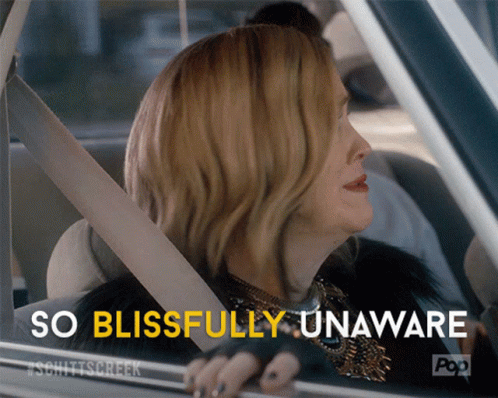A Hard Pill To Swallow
Let me preface this post by saying that antibiotics, when prescribed appropriately, are an incredible invention that have saved millions of lives for the past century. If it weren’t for antibiotics, we would have no way to fight meningitis, pneumonia and tuberculosis (just to name a few). We need antibiotics in order to survive as a species and I am beyond grateful to have had access to them whenever I had a bacterial infection or injury.
With that said, I can say without a shadow of a doubt, that the majority of people reading this have been unnecessarily prescribed an antibiotic at some point in their life. How can I make such a blanket statement you might ask? According to the CDC, 1 out of 3 antibiotic prescriptions are unnecessary. We are currently living in a time where antibiotics are prescribed for everything from bronchitis to sinus infections. I remember countless times as a child my doctor would start me on antibiotics for strep throat before my results came back in the chance they were positive. While I was appreciative to already be on medication when the results were in fact positive, there were times they came back negative. This means I subjected myself to the adverse effects of antibiotics for no reason whatsoever. Seems harmless enough, right? WRONG. Why was this a terrible decision advised by my doctor? Well, get ready for me to ruin your day.
The over-prescribing of antibiotics can lead to antimicrobial resistance which, as a result, can create deadly consequences. Antibiotic resistance occurs when bacteria or fungi survive from the drugs designed to kill them. Out of the 2.8 million people infected with a bacteria resistant infection each year, more than 35,000 die. You can always count on me to be a ray of fucking sunshine.
If you take antibiotics for a prolonged period of time when they are not needed, the medicine can lose its effectiveness, possibly creating a dire situation down the road. If you ever need an organ transplant, have a deadly infection or even contract something as treatable as a bacterial STD, you might find yourself shit out of luck if your body becomes resistant to the antibiotic needed to cure this ailment. Antimicrobial resistance is such a serious issue that the CDC considers it one of the “biggest public health challenges of our time.” While antibiotics save your life in many circumstances, they should be taken with an abundance of caution and only out of necessity.
I wish I had known this 16 years ago when I stepped into my dermatologist’s office for the first time. On my first visit, he recommended I start on a prolonged dosage of antibiotics. Since I was a teenager, I trusted the advice from my board-certified doctor because it was the only context I had for treating acne. Because I was already well on my way to becoming a full-blown hypochondriac at the age 13, I was initially ecstatic by this recommendation. As disturbing as this sounds, the thought of destroying any potential bacteria in my body and clearing up my skin would be killing two birds with one stone.
Antibiotics are STILL used to treat acne since science shows that they reduce the number of bacteria on the skin and help reduce inflammation. While I guess this makes sense in the grand scheme of things, what happens when you go off the antibiotic? Does the bacteria magically disappear forever? The simple, and obvious (although not at the time) answer is no. Also, what if your acne is caused by hormones, a food allergy or something besides bacteria? Again, I was a naive child who just wanted clear skin so I didn’t ask any questions.
I started on doxycycline for about 6 months which worked well at first but eventually began to lose its effectiveness. What should have been a red flag to my doctor that I was developing antimicrobial resistance to the drug, became the decision to start me on a different strain of antibiotics to see if this magically did the trick. Spoiler alert: it didn’t. Even though I didn’t see much of a difference, I continued on the antibiotic for another 6 months because my doctor told me to “trust the process.” Insert eye roll here. After not seeing much improvement, I went off the antibiotics and started some other shitty and expensive over-the-counter face wash that guaranteed clear skin.
Not only did this year on antibiotics not solve my acne problem, I also believe it was one of the initial causes of my digestion issues. Antibiotic overuse has been linked to the C. difficile infection, which I showed very large margins for in my microbiome test. C. difficile is an infection in the large intestine that can cause severe diarrhea, abdominal cramping/pain and potentially life-threatening damage to the colon. How wonderful.
After doing a deep dive into the effects antibiotics have on the gut, I found that one single course of antibiotics can disrupt your gut microbiome for an entire year. The job of antibiotics is to kill all the bacteria in your stomach, good and bad. However, we need bacteria in our stomach to break down food, absorb nutrients and support the immune system. Type-2 diabetes, IBS, colon cancer, and arthritis have all been linked to unbalanced bacteria in the gut.
From what I’ve personally experienced and researched, antibiotics should only be taken if absolutely necessary. If you do need to take antibiotics for a bacterial infection, probiotics are finally becoming increasingly recommended by physicians- thank god. However, it’s so difficult to find the correct one since there are many types on the market that each promise something different. I have tried around 20 brands of probiotics over the past ten years, each with very inconsistent messaging. When I first started out, being the broke-ass bitch I am, I bought the cheapest one I could find. Shocker, this didn’t work. Then, there was a push to only purchase probiotics in the refrigerated section (which were about 4x the price) since it was shown that the bacterial flora couldn’t survive in a warm climate.
Just when I thought I figured it out, new information came to light. Now I’m being told that probiotics shouldn’t be refrigerated. The reasoning behind this is if the probiotic can’t live outside of a cool, refrigerated climate, how could it possibly work inside the body with a temperature of approximately 98 degrees? There was one specific probiotic with this ideology that influencers without a medical degree started to push on their Instagram accounts. Well, my desperate self was indeed influenced by them so I handed over my credit card and started on a monthly subscription which thankfully only lasted two months. This pill worsened my constipation, increased my stomach cramps and made me feel worse overall.
I was officially at a loss and beyond frustrated with all the misinformation out there. However, I finally learned that NOT ALL PROBIOTICS ARE CREATED EQUAL and don’t work for everyone. I spent hundreds of dollars on failed probiotics and felt completely bamboozled by the entire process.
As annoyed as I was that there was no quick-fix probiotic, I was grateful to receive some insight as to why they weren’t working for me. Currently, I take a highly concentrated probiotic called visbiome. While I have noticed an astronomical improvement with my digestion, it’s hard to tell how much credit I can give to this specific probiotic because of the many drastic changes I have made. My advice would be to save your money on any ‘guaranteed-to-work’ probiotic on the market - since that’s bullshit- and seek out a naturopath to find a probiotic suitable for your specific needs.
While I hope that my dermatologist was looking out for my best interest and seriously considered antibiotics to be the best course of action, I can’t help but question his intentions. This is a CLASSIC example of how some doctors only look to fix the physical symptoms, as opposed to the root cause of the issue.






